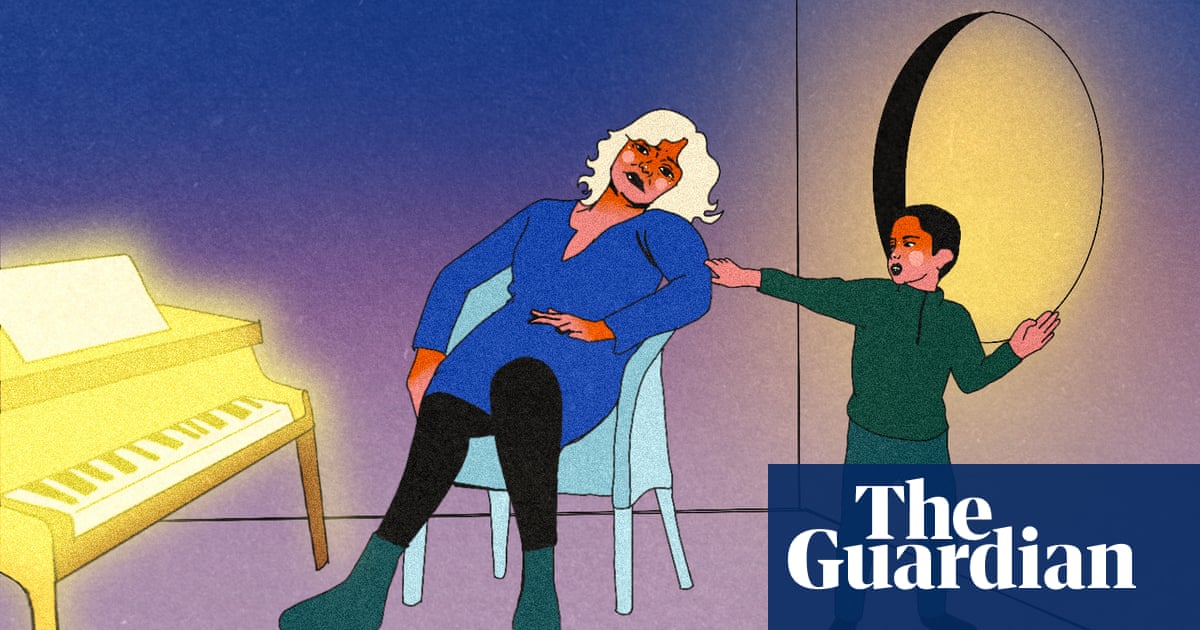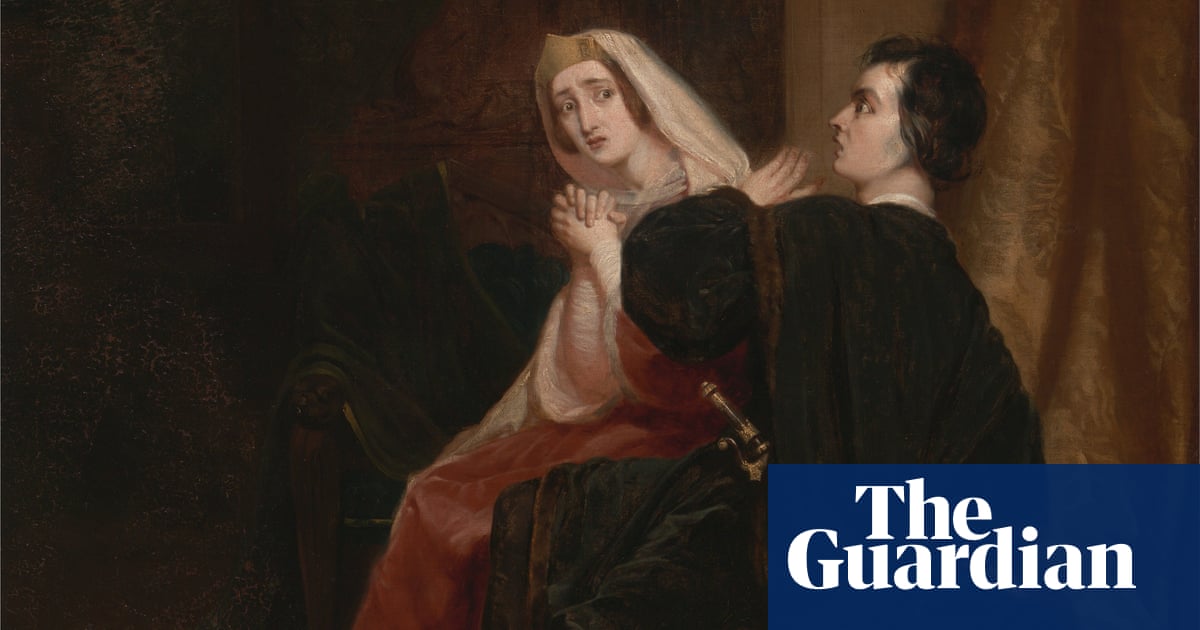Constance fills her days with music. The 77-year-old, who lives in London, studies and performs classical piano. To stay involved with her community, she volunteers with local arts projects, a community garden and an oral history initiative.
After a career working as a mental health professional, what Constance wants from retirement is to continue engaging with causes and passions that matter to her. (Her name has been changed for her privacy.)
“Most important to me is my commitment to building a fairer, more equal, and non-violent world where people care about the planet,” she says.
But she’s noticed others projecting assumptions on to her – “expectations that every grandparent, grandmothers especially, should feel fulfilled [by] and dedicated to their grandchildren”, she says.
Constance loves her three young grandchildren, but is not interested in moving closer to where they live, about two hours north of London. “I would not be willing to compromise if I felt that I was being asked to sacrifice my commitments in order to look after grandchildren, unless it was some kind of emergency,” she says. Her son would love to have her as a neighbor, but doesn’t pressure her, Constance says: “Actually, the pressure comes from the people around me.”
Constance’s friends, despite being what she describes as lifelong “hardcore feminists”, behave as though a grandmother “should want to spend every minute possible” with their grandchild. These friends judge each other if they choose independent travel over family holidays.
“There’s almost a sense of competition for how many grandchildren you’ve got,” she says. “The more you’ve got, the better you are. I feel very ambivalent when I hear people say they can’t fathom the future without a grandchild,” or that they’re “dismayed” their children are child-free, she says.
The absence of grandchildren can elicit pity or confusion.
“I do get sorrowful looks from friends, all of whom have dozens of grandchildren, whenever the subject of grandchildren comes up,” says Mary, a Sydney-based 73-year-old retiree who loves writing and theatre. “Some will comment how sad it is” that she doesn’t have any grandchildren, says Mary. She admits she might have liked “an opportunity to have a second chance of bringing up a child, with the hindsight of what I could and should have done better as a mother”.
But she’s hardly hung up on not having grandchildren: “I absolutely love my obligation-free life.”
The belief that mothers should focus solely on their children and spend little time on professional or personal interests is no longer the default. But when it comes to grandmothers, traditional ideas still hold sway.
As a grandmother, observes Constance, “the old stereotypes rebound and you may find yourself … expected to prioritize grandchildren and sacrifice hobbies and interests, and cut short your day in order to be a carer for your grandchildren”.
“We’re not just here to have children and bring up the next generation … Why do people feel like that’s all their life could consist of in their older years?” asks Constance. “I just know I don’t feel that way myself.”
For women like Constance, pressure comes from the persistent idea that a woman’s value is tied to her role as a caretaker, which also minimizes the many other ways she contributes to society. According to age-old, gender-essentialist norms, women are first and foremost natural child-rearing enthusiasts.
The expectation that childcare should define an older woman’s life is politically convenient. In the US, childcare programs have been underfunded for decades, leaving many families, particularly those from marginalized communities or raising children with disabilities, without accessible, reliable support. This means parents have real childcare needs that are hard to meet. But grandparents “are expected to just be sort of doing nothing in the background”, ready to spring into action as an unpaid social safety net, observes Vanessa May, a professor of sociology and co-director of the Morgan Centre for Research into Everyday Lives at the University of Manchester.
In a 2020 podcast conversation, JD Vance agreed with host Eric Weinstein that the “whole purpose of the postmenopausal female” is to provide grandchild care, citing his own mother-in-law taking a sabbatical from her role as a biology professor at the University of California, San Diego, to help raise his kids.
“Our individualistic society has always undervalued care labor, and the monumental amount of unpaid care labor that women have done historically has been undercompensated and overlooked,” Darby Saxbe, an associate professor of psychology and director of the University of Southern California’s Dornsife Center for the Changing Family, has said.
This unpaid labor isn’t just a family matter; it’s an invisible pillar of modern economies. In the UK, for example, grandparents save parents more than $70bn annually in unpaid, sometimes physically demanding childcare – work that supports the country’s economic stability while remaining largely unrecognized.
Assuming that an older woman has nothing meaningful in her life beyond family obligations “feels like a political tide going against the gains that women have made in terms of rights and equality – a clear effort to put women back in their box in the family, under men’s rule”, says May.
When Rose heard Vance’s comments, the implication that older women don’t have anything to do apart from childcare struck the 68-year-old (her name has been changed for her privacy), a retired, Korean-Canadian finance professional with two grandchildren, as “insane”.
after newsletter promotion
“I can think of a thousand things,” says Rose. She calls community involvement – primarily through board work with non-profits in areas including women’s leadership and empowerment – one of the most fulfilling aspects of her life, along with travel, spending time in nature and exploring new visual art forms like calligraphy.
“Women do public service through their work. There’s plenty of women in politics and economic life, in the labor market,” notes May. Conversely, “if a man doesn’t have children or if he doesn’t have grandchildren, is he seen as somehow not contributing as he should be? Why is that?”
The cultural conversation around grandchildren and a lack thereof often centers on older women pressuring younger women to have kids – petitioning for a family legacy or impatiently jonesing for little baby fingers and cheeks. Yet Constance and Mary’s experiences of peer judgment underscore how much older women also face and perpetuate tedious societal expectations and pressures about what their lives should look like.
A growing number of adults are choosing to be child-free. The share of adults under 50 without children who say they are unlikely ever to have kids increased from 37% in 2018 to 47% in 2023. More older adults may be ending up grandchild-free and potentially feeling like “an aberration within their social circles” as a result, says May.
Because motherhood is seen as a pinnacle of womanhood in many circles, not having grandchildren can be regarded as a cause for pity, adds May, saying: “I think it’s partly to do with an idea that if you have brought your children up well, they will go on to fulfill their duty by having children.”
Because generational expectations are changing, some older adults may struggle to make sense of their place, and worry that “the independent choices of their adult children are reflecting on their social status within their social groups”, says May.
Today’s older parents “are like pioneers trying to figure out, how do you live into old age different from what you might have been expecting, or the people around you might be expecting for you?” says May.
Adjusting to changing parenthood and care norms can be difficult. “People need to be able to express regret and what is not working for them and their lifestyle,” says Carol Merle-Fishman, a New York state-based integrative psychotherapist with a special interest in the transition to grandparenthood. That could mean someone wishing they had grandchildren, but it could also mean someone admitting that grandparenthood isn’t what they’d expected. The arrival of grandchildren can disrupt friendships as peers relocate to be closer to family, or a grandparent may not be physically or emotionally up for any more childcare after having raised their own kids.
Women “don’t have a lot of permission to talk about which parts of parenting and raising children we don’t like”, says Merle-Fishman.
The assumption that grandparenthood is a calling can be alienating for those with more ambivalent feelings. It’s as if, once a woman’s children are grown, the expectation simply resets: here’s another role to fill, another way to be useful, and those who don’t feel fulfilled by it or would rather spend their days doing something else must be off-track. But the women who feel ambivalent about grandmotherhood are not out of step – the assumption that a woman’s value is tied to the next generation of her family is.
In sociologist Dr Orna Donath’s 2017 book Regretting Motherhood: A Study, a mother of three named Sky admits: “For my own sake, I hope that my children will not get married and have children. It scares me; I don’t want it in my life. If I have grandchildren, then I will be obligated and forced once again to do things that I don’t want to. […] It will only burden me.”
If spending time with grandchildren “is where you derive 100% of your fulfillment and satisfaction, then go for it”, says Rose. “But on the other hand, I don’t think people should feel guilty if they feel like they want some time and life of their own in retirement.”
“My wish for women is that we have times in our lives where we get to make our own decisions,” Eve Rodsky, author of the 2019 book Fair Play and gender-equality advocate, has said. “That societal expectations are not making our decisions for us, but that we really get to make our own decisions.”










